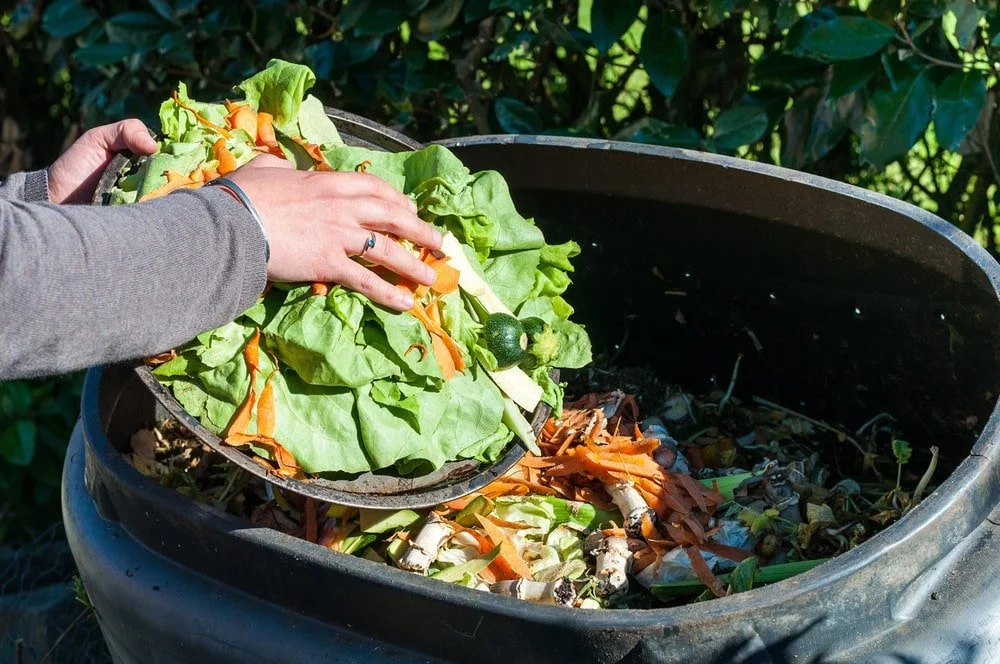Healthy soil is the foundation of a productive garden full of healthy plants that are less prone to disease. Adding organic matter to your soil in the form of compost or vermicast is one of the best things you can do. When you improve your soil with compost it just keeps getting better and better - it becomes more alive with beneficial worms and microorganisms. The other bonus is that you reduce your waste by recycling your food scraps and plant materials into compost.
Composting or Worm Farm – which is best for me?
Worms
If you don’t have much space a worm farm is a great option: A worm farm doesn't smell if looked after properly and can fit on a balcony, garage or even inside. The benefits of worm farms include they:
Produce liquid and solid castings, both of which can be mixed with water to produce a liquid fertilizer
Take up very little space
Are great for using food scraps and kitchen waste
The limitations can be they:
Can process a limited amount of waste which may not be enough for large families
Are better for vegetable scraps and soft vegetation, are not so good for garden waste
Composting
Most composting requires more space than worm farming, although rotating compost tumblers can also be used in relatively small spaces on any surface. Preferably set up composting on bare earth.
Benefits of Composting Include:
A larger variety & volume of materials can be used including garden waste
If you have enough ‘waste’ go for both compost and worms!
If you have enough space consider getting chickens as well, as they can be an even faster converter of food waste - they also give you healthy, home-grown, organic, free range eggs.
Compost basics
Composting is the aerobic (using oxygen) breakdown of organic matter by beneficial micro-organisms like bacteria and fungi. What can we use to make compost? The rule of thumb is ‘Anything that once lived can turn into compost’
Use the A.D.A.M Principles while composting
A - Aliveness – compost is a ‘living organism’ full of worms & healthy microbes
D - Diversity – mix in a variety of ingredients: eg food scraps, dry leaves, fine wood, mulch, grass, hair, herbs etc.
A - Aeration – aerate your compost regularly, with a spiral mixing tool
M- Moisture – keep compost moist at all times
Setting up & MANAGING the bin/heap
Position the bin in a well drained place (sun or shade is OK)
Put a layer in the base of the bin, about 200-300mm (4”-6”) deep, of high carbon material, i.e. finely chopped woody mulch, leafy twiggy materials or ‘forest fines.’
Water this layer well
Add 2 or 3 shovel-fulls of rich compost, or lovely black, alive soil from your garden. This ‘seeds’ your compost with the aliveness that does all the work
For every addition of food scraps, add the same amount of ‘forest fines’ or chopped small woody twigs and leaves, ie 1 bucket of food scraps to 1 bucket of mulch
Mix with a spiral tool and check that the entire heap is moist
Food scraps must not be left exposed on the surface. Always cover surface with a thin layer of ‘forest fines’ or chopped small woody twigs and leaves, this reduces flies. Then cover the surface with a ‘blanket’ (eg hessian sack) to keep the heap moist & dark
Add other ingredients regularly eg manures, vacuum contents, hair, herbs, weeds, grass, soil
Add a teaspoon of dolomite ( Worm Farm & Compost Conditioner) weekly, to balance acidity
When your bin is full it needs to mature for 6-8 weeks. Keep this maturing bin moist & mix it and add a little dolomite and pelletised manure, weekly
You can start a new bin for your continuing supply of fresh food scraps once your old one is full.
Using Compost
Compost is ready to use when it is dark & smells earthy (there is no sharp ammonia smell)
Place the compost around the DRIP-LINE of plants
Keep the compost away from the stems of plants
Compost problem solver
Below are three of the most common problems people have with their compost:
Problem 1:
SMELLY
Remedy: Increase AERATION
Add more coarse material
Mix the heap much more regularly with a spiral mixing tool
Add a handful of dolomite, ( Worm Farm & Compost Conditioner)
Problem 2:
NOT HEATING UP
Remedy:
Add more NITROGEN material eg manures, young grass clippings, blood & bone etc
Check the MOISTURE level ( dry heaps don’t heat up!) add more water when mixing
Mix the heap more regularly with spiral mixing tool
Add a handful of dolomite, ( Worm Farm & Compost Conditioner)
Problem 3:
ATTRACTING VERMIN
Remedy:
Put small mesh chicken wire on the ground under compost bin and fold up the sides and tie, or place a piece of flat gal metal sheet on ground (drill 50 or more drainage holes) and place bin on top of metal sheet.
Always cover the surface of the heap with a hessian sack or something similar & keep the lid on
Mix the heap more regularly with a spiral mixing tool to increase aeration (vermin do not like a disturbance!)
Keep the heap moist (vermin do not like a damp environment!)
Add a handful of dolomite ( Worm Farm & Compost Conditioner)
Reduce the amount of cooked meat and bread being added to the heap



